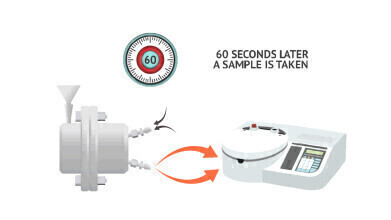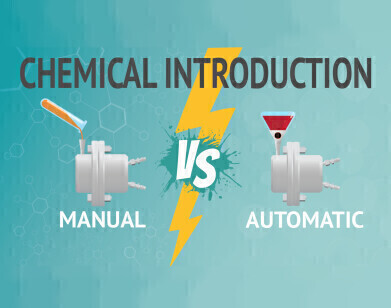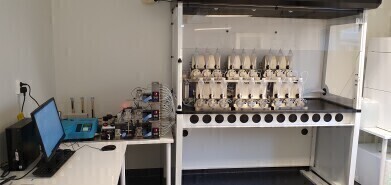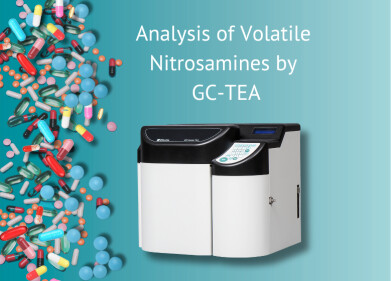Gas chromatography
Exploring the Differences: Manual vs. Automated Challenge Chemical Introduction in Permeation Testing
Jun 27 2023
In the world of permeation testing, the choice between manual and automated challenge chemical introduction can significantly impact the efficiency and automation capabilities of the testing process. This article will delve into the key differences between these two approaches and highlight the advantages they offer. If you're interested in learning more about the components of an automated permeation system, check out our informative blog on our website.
Manual Challenge Chemical Introduction: A Reliable Approach
A common configuration in permeation testing is Ellutia's six-cell automated system with manual challenge chemical introduction is specifically designed for EN-374 analysis. This widely adopted configuration requires the operator to manually introduce challenge chemicals into the relevant cells. Equipped with dedicated flow controllers and guided by the stream selection valve, the collected gas maintains a constant flow for sampling and analysis using a gas chromatograph.
The manual system utilises a discrete sampling method, measuring multiple samples at specific intervals based on the expected breakthrough time. Depending on the material and challenge chemical being tested, samples are taken every 60 seconds to observe the permeation process. Although this system is suitable for customers requiring fewer tests, it has certain limitations in terms of automation.
Automated Challenge Chemical Introduction: Enhanced Efficiency and Automation
To overcome the limitations of manual testing, Ellutia offers an automated challenge chemical introduction system, this enhances the permeation testing process. Like the manual system, the automated configuration consists of multiple analysis cells. However, the automated system incorporates dedicated reservoirs above each cell, filled with challenge chemicals, and electronic control modules to introduce the sample at the precise time.
Paired with Ellutia's advanced software, the automated system offers unparalleled flexibility and efficiency. Operators can set up multiple experiments and let the system run autonomously, even overnight. This automation maximises resources and significantly accelerates the testing throughput.
With the ability to accommodate additional blocks of 6 cells, the automated system is ideal for high-volume testing scenarios, allowing users to run individual or multiple experiments concurrently with various challenge chemicals and methods.
For high-volume testing scenarios, the automated system offers expansion capacity. Additional blocks of six cells can be added, accommodating up to 18 cells in total. This configuration empowers testing facilities to run individual or multiple experiments concurrently, using various challenge chemicals and methods, further increasing efficiency. To gain a better insight read our article on all you need to know about automated challenge chemical introduction.
Choosing the Right System for Your Permeation Challenges
Determining the ideal permeation testing system depends on your specific needs and requirements. If you require a smaller number of tests and prefer a more hands-on approach, the manual challenge chemical introduction system may be suitable. However, for unattended testing, increased automation, and high-volume testing, the automated system offers significant advantages.
Our team of experts will dive deep into your specific needs, working collaboratively to find the best-performing permeation system tailored to your requirements.
To schedule a consultation and discover how Ellutia's permeation systems can transform your testing processes, click the link.
Events
May 11 2025 Vienna, Austria
May 18 2025 Tempe. AZ, USA
May 21 2025 Birmingham, UK
Jun 01 2025 Baltimore, MD, USA
Jun 15 2025 Bruges, Belgium







.jpg)











